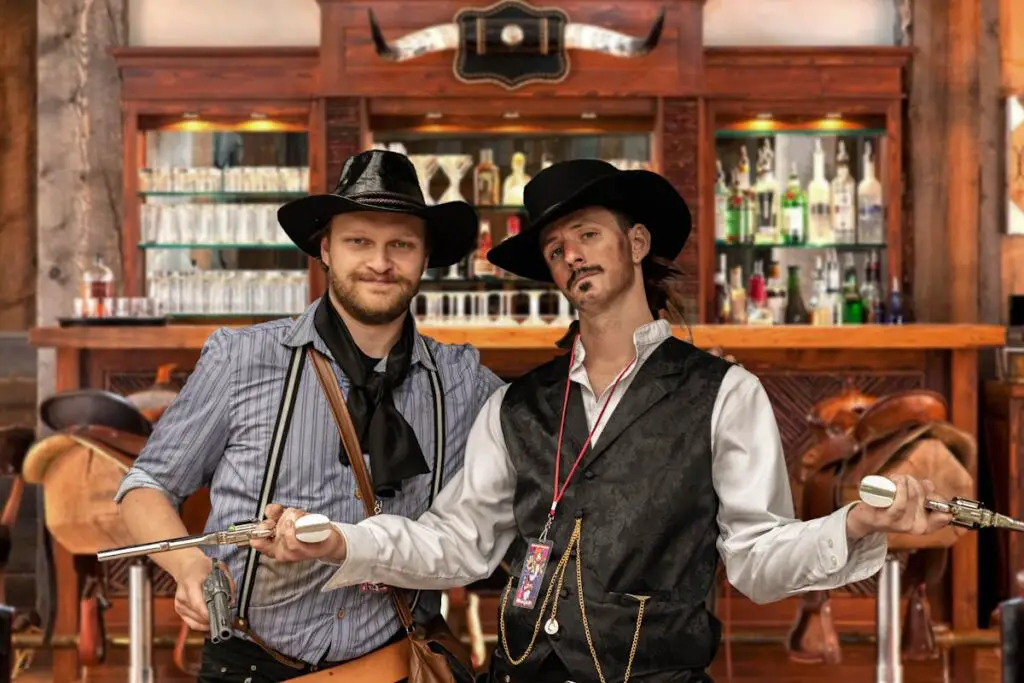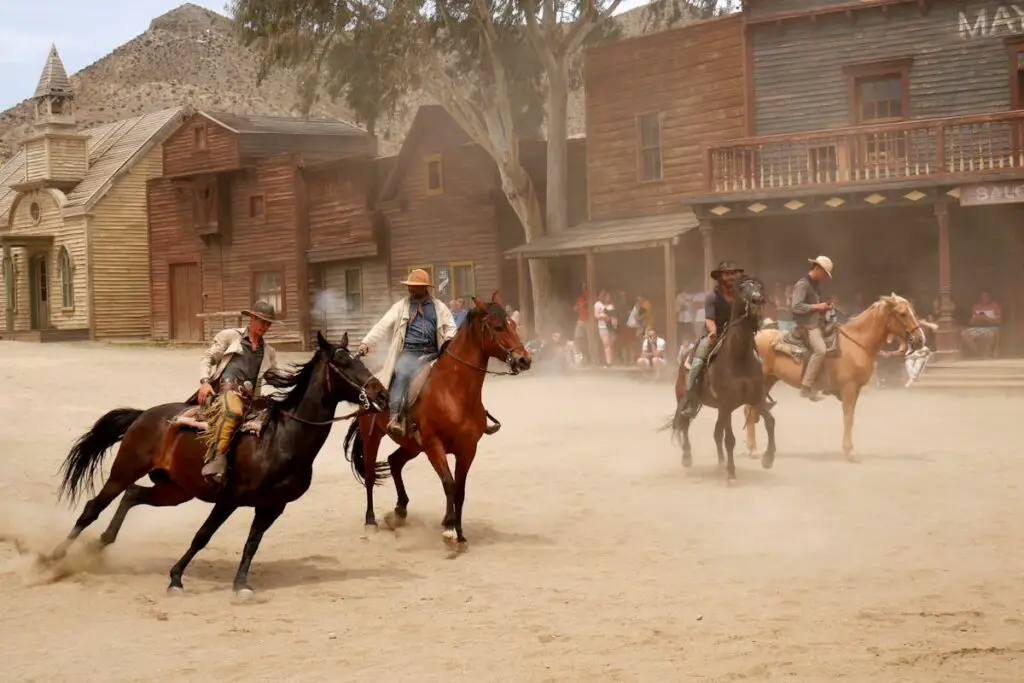Key Takeaway: Real cowboys have mixed feelings about "Yellowstone." They value its authentic portrayal of ranch life but criticize the exaggerated violence, foul language, and some practical inaccuracies. The involvement of real cowboys in training actors adds authenticity to the show.
The television series “Yellowstone” has captured the imagination of many with its riveting drama and larger-than-life portrayal of modern-day cowboys.
However, as a volunteer at the Prescott Frontier Days Rodeo and someone deeply embedded in the cowboy lifestyle through my husband and our community, I feel compelled to voice my concerns about the show’s portrayal of cowboys.

From what I’ve seen, “Yellowstone” paints cowboys as violent and ruthless—a portrayal I find to be a gross misrepresentation of the authentic cowboy way of life. Having been around cowboys extensively, it’s clear that the extreme behaviors depicted on the show are far from accurate.
The suggestion of daily gunfights in the streets is far-fetched, to say the least. Historical records from Prescott’s early days do mention sporadic gunfights, mainly in mining camps, but these incidents were rare and are not reflective of the cowboy community as a whole.
Furthermore, the show’s depiction of animal treatment on ranches is another area where “Yellowstone” misses the mark. The cowboys I know and have spoken with take great care of their animals, showing deep respect and reverence for the horses and cattle that are integral to their daily lives. This is a far cry from what is often shown on screen.
Despite its popularity for some, the disconnect between “Yellowstone’s” portrayal and the reality of cowboy life is striking. The show substitutes murder and brutality for authenticity, catering to the audience’s desires for shock value rather than truthful representation.

While entertainment has its place, I yearn for the return to more authentic and heartwarming portrayals of cowboys, akin to what was beautifully captured in the 1985 series “Lonesome Dove.”
Frequently Asked Questions about the Real Cowboy Life
In this section, we will be delving into some of the most common inquiries and curiosities that surround our topic.
What does a day in the life of a cowboy really look like?
A cowboy’s day begins early, often before sunrise, and involves a wide range of duties that extend beyond what’s glamorized on television.
These can include feeding and caring for animals, repairing fences and buildings, monitoring the health and welfare of the livestock, and managing pastureland.
How accurate is the portrayal of cowboys in media?
While entertainment like “Yellowstone” provides a dramatic and compelling narrative, it often exaggerates or misrepresents the daily realities of cowboy life.
Cowboys are more than the stereotypical images of gunfights and gruff exteriors; they are custodians of the land and animals, with a strong sense of community and stewardship.
Have cowboys always been part of American culture?
Cowboys became an integral part of American culture during the expansion westward in the 19th century, especially from the 1860s to the 1890s.
Their role was crucial in managing cattle and conducting long drives across vast landscapes, which cemented their place in American history and folklore.
How do cowboys view their animals?
Cowboys view their animals, especially horses and cattle, as trusted partners. There is a mutual respect and understanding that develops from working closely together.
Animal welfare is a top priority, and much of a cowboy’s skills and knowledge are dedicated to ensuring the health and well-being of their herds.
Can anyone become a cowboy?
Becoming a cowboy is less about the external trappings—hats, boots, and so on—and more about the commitment to the lifestyle and the values it represents.
It requires a sincere dedication to animal welfare, land management, and the broader community.
Conclusion: Do Real Cowboys Buy What the Yellowstone Television Series is Selling?
In conclusion, while “Yellowstone” may offer entertainment value to some, it’s essential to remember that the true cowboy lifestyle is grounded in respect—for the land, the animals, and the community. It’s a life of hard work, integrity, and care, far removed from the sensationalized version often portrayed on screen.
So, let’s continue to honor and celebrate the authentic cowboy way of life, one rooted in history and camaraderie, rather than perpetuate misrepresentations for the sake of entertainment.



Leave a Comment
You must be logged in to post a comment.